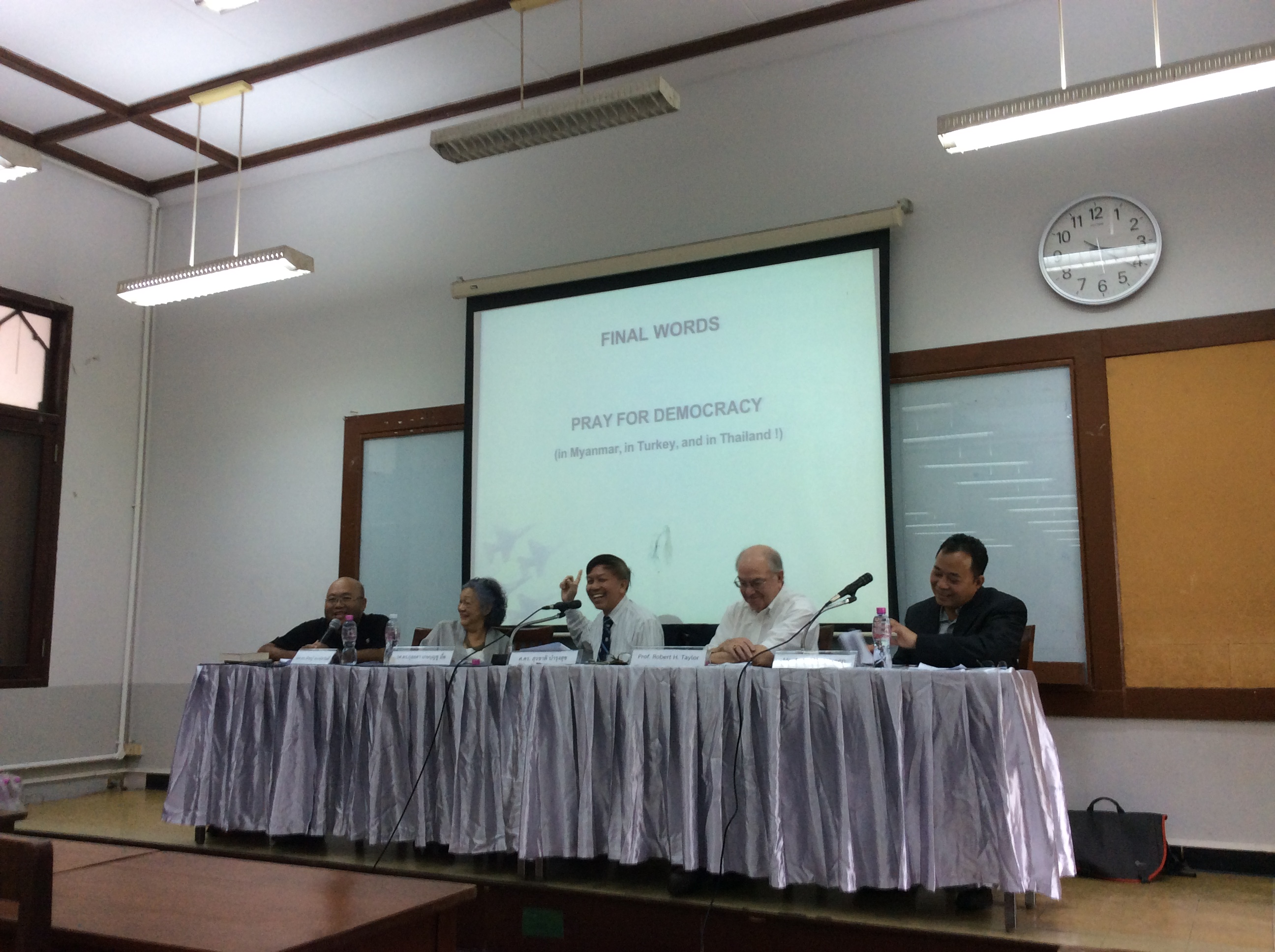An expert explained how the Myanmarese military took control of politics, which is similar to what the Thai military is trying to accomplish over the past 70 years, adding that when a military takes control of ‘the ring,’ politics is in trouble.
On Thursday 28 July 2016, at Chulalongkorn University, Professor Robert H Taylor, a veteran expert in the military and politics of Myanmar was accompanied by Professor Surachat Bumrungsuk, an international relations professor at Chulalongkorn University, and Aung Thu Nyeen, a Myanmarese student at the National Institute of Development Administration Thailand, to discuss the roles of military political involvement and their legacies on the establishment of democracy in their countries.
Taylor began with posing the question of the difference of armies playing politics or controlling politics, and in the Thai context, the military is much more a player of politics. Taylor, also argues that degree of involvement heavily impacts the politics as well.
In Myanmar, through a large degree of direct control, has enabled the army to be the creator and protector the so-called “ring,” or the constitution. Taylor explained that in the build up to Myanmar’s constitution is up for contention, the military use prolonging peace, protection and guidance rhetoric because as protectors, they cannot allow changes that may impact the pathway to democracy that they are uncomfortable with.
This discourse of preservation and protection, Taylor explains, has made it justified for the army to intervene in events dating back to the 1940s, up until last year’s election, which included pressure to decrease the power of the army in the constitution.
A lesson that Thailand must learn from the Myanmarese context is not to allow the military to have control of too much power, or “the ring,” as Taylor called it. He further explained that “When they control the ring to allow politicians to play political games, it’s difficult to not step into the ring sometimes and take a swing.”
When considering this in the Thai context, Surachat said “I think it is impossible for the Thai army to control Thai politics because we have someone controlling it already.” Taylor seemed to agree posturing that the Thai army, since around 1945, has only experienced about four to five years of direct control of the country, however, with the abundance of coup d’etats since 1932, it is apparent that the military remains an active political player in Thai politics.
Power is actually more decentralized in Thailand which forces it to the player role. Professor Surachat discussed how “in political science there are three sources of power: the Executive, the Legislature and the Judiciary. In Turkey however, the army becomes the fourth power, but in Thailand, it becomes the fifth.”
With certain controversial laws in place, such as article 44 of the interim constitution, which grants the junta with absolute power, or article 61 of the referendum act, which prohibits campaigning dissenting views about the upcoming constitutional referendum, the Thai junta, although not in complete control of politics, certainly does ‘take its swings in the ring.’
Furthermore, considering the questions of the upcoming controversial constitutional referendum, which could approve a military-backed constitution, and allow the military-appointed senators to select the government that will be in power the following five years, it would appear that Thailand following a similar path to establish democracy.
The speakers of the discussion, (from left to right) Ptich Pongsawat, Kullada Kesboonchoo-Mead, Surachart Bamrugsuk, Robert H Taylor, and Aung Thu Nyeen

